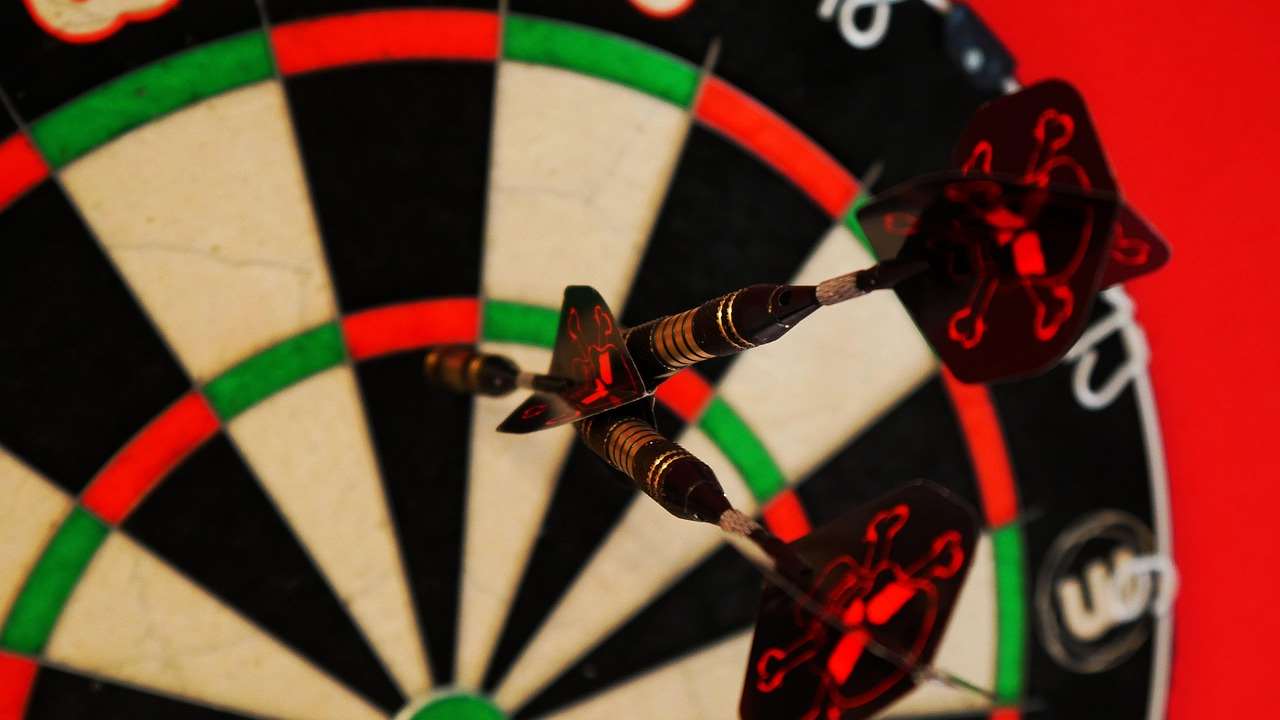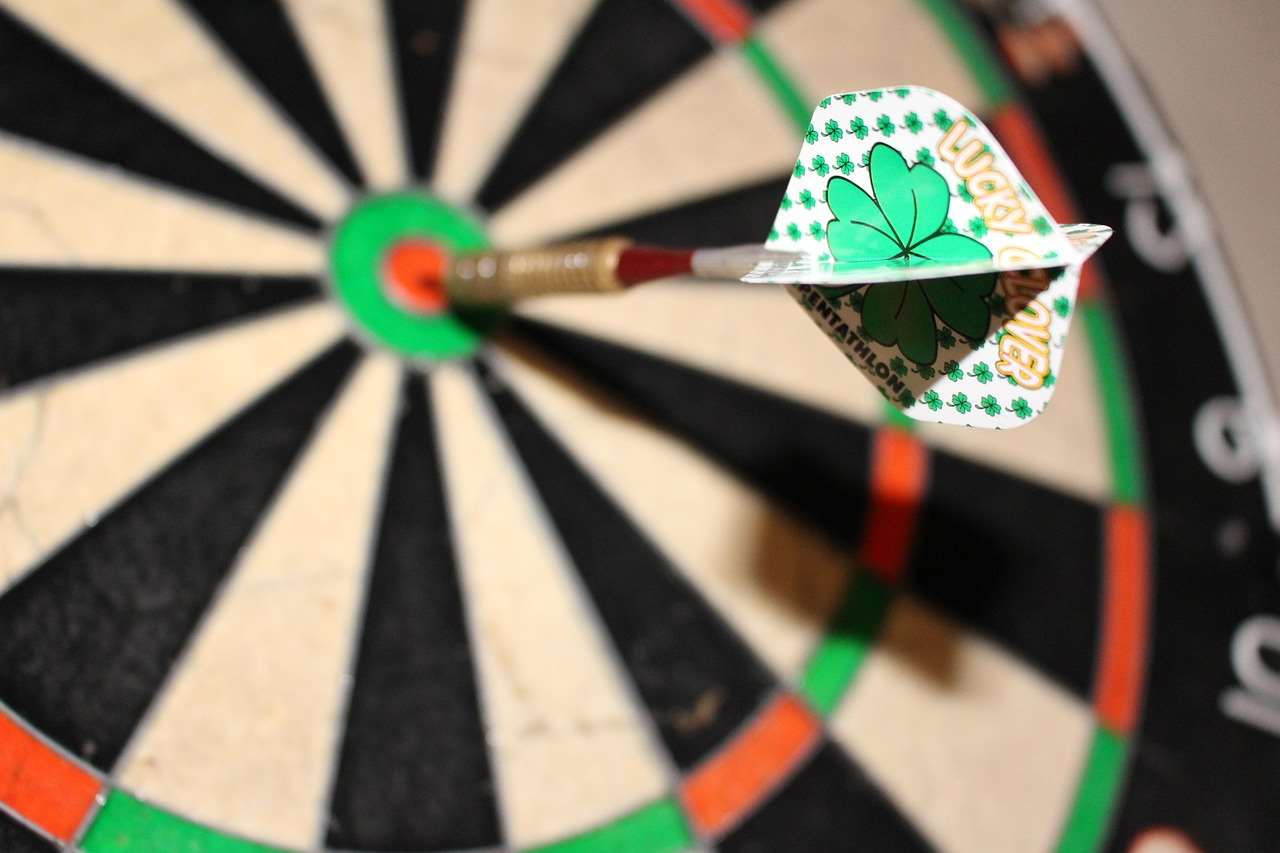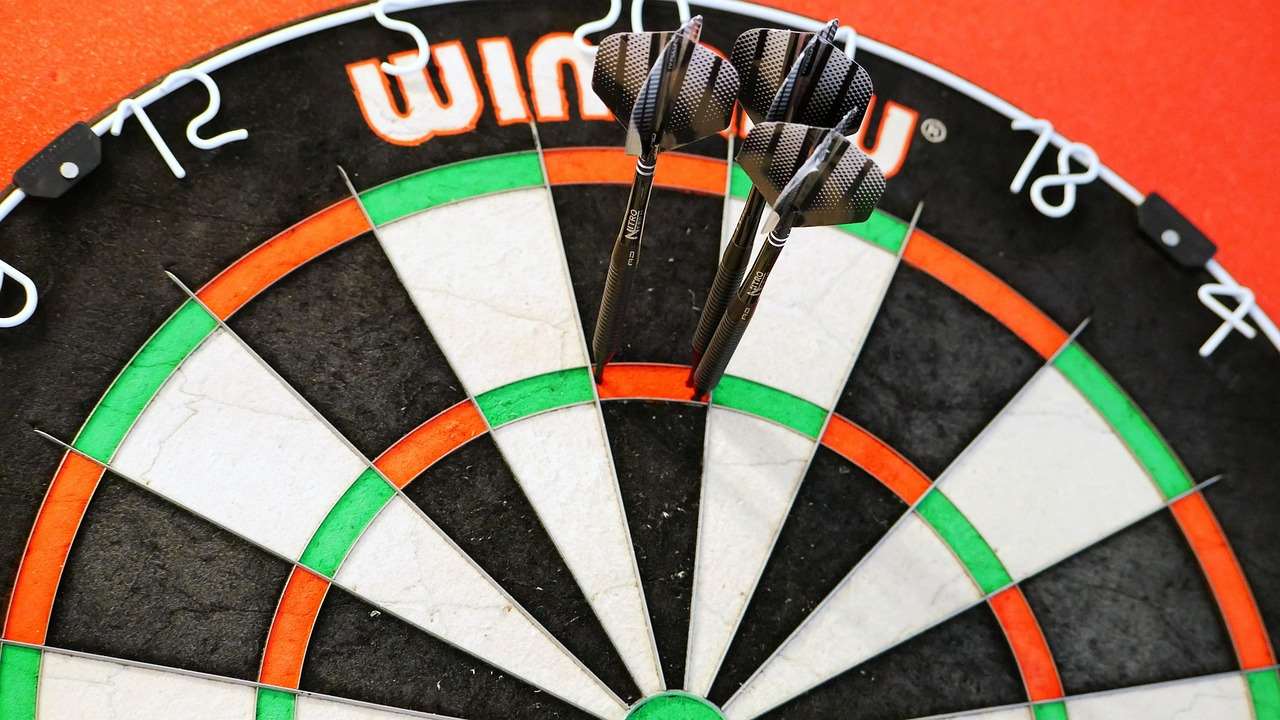Mastering the **mental game handicap darts** can instantly level the playing field and boost your enjoyment, regardless of your skill. This article will explore how to cultivate the right mindset, strategies to overcome mental blocks, and techniques to thrive under pressure, allowing players of all abilities to compete meaningfully and enjoy the sport even more.
⚠️ Still Using Pen & Paper (or a Chalkboard)?! ⚠️
Step into the future! The Dart Counter App handles all the scoring, suggests checkouts, and tracks your stats automatically. It's easier than you think!
Try the Smart Dart Counter App FREE!Ready for an upgrade? Click above!
Understanding the Psychology of Handicap Darts
Handicap darts aims to equalize competition between players of varying skill levels by assigning each player a target score or starting position tailored to their ability. However, the effectiveness of a handicap often hinges on the **mental fortitude** of the participants. The psychological dynamics at play are significant, affecting both the stronger and weaker players.
For the stronger player, there’s the pressure of expectation. They’re expected to win, and any slip-up can be seen as a failure. This can lead to anxiety and overthinking. Conversely, the weaker player might feel intimidated, believing the handicap isn’t enough to truly close the gap. This can result in a self-fulfilling prophecy of defeat. Overcoming these psychological barriers is crucial for a truly competitive and enjoyable game.

Common Mental Challenges in Handicap Darts
- Performance Anxiety: Fear of failure, especially for the more skilled player.
- Intimidation: Feeling overwhelmed by the opponent’s perceived skill.
- Overthinking: Analyzing every throw instead of trusting muscle memory.
- Frustration: Experiencing anger and disappointment after a bad throw.
- Lack of Focus: Difficulty maintaining concentration throughout the game.
Addressing these challenges head-on is essential for improving your mental game handicap darts performance.
Developing a Winning Mindset
Cultivating a resilient and positive mindset is paramount for success in handicap darts. This involves several key components:
- Positive Self-Talk: Replace negative thoughts with encouraging affirmations. Instead of thinking “I always miss this shot,” try “I can hit this if I focus.”
- Visualization: Mentally rehearse successful throws and game scenarios. This helps build confidence and reduces anxiety.
- Focus on the Process: Instead of fixating on the outcome, concentrate on your technique and routine. This allows you to stay present and avoid unnecessary pressure.
- Embrace Imperfection: Accept that mistakes are inevitable and learn from them. Don’t let a bad throw derail your entire game. Learning Basic Darts Fundamentals for Beginners can assist here.
- Set Realistic Goals: Break down your overall goal into smaller, achievable steps. This provides a sense of progress and motivation.
By consistently practicing these techniques, you can transform your mindset and improve your performance under pressure.
Strategies for Overcoming Mental Blocks
Even with a strong mindset, you may encounter mental blocks that hinder your performance. Here are some strategies to overcome them:
- Identify the Trigger: Determine what situations or thoughts trigger your mental block. Once you identify the cause, you can address it more effectively.
- Take a Break: Step away from the game for a few minutes to clear your head. Engage in a relaxing activity, such as deep breathing or stretching.
- Change Your Perspective: Reframe the situation in a more positive light. Instead of viewing the game as a competition, see it as an opportunity to improve your skills.
- Focus on Your Breathing: Deep, controlled breathing can help calm your nerves and improve focus. Inhale deeply through your nose, hold for a few seconds, and exhale slowly through your mouth.
- Use Anchors: Create a physical or mental anchor that you can use to ground yourself in the present moment. This could be a specific word, image, or action.
Remember, mental blocks are temporary. By employing these strategies, you can regain control and get back on track. Modifying rules for mixed-level dart players can also reduce pressure.

The Role of Practice in Mental Toughness
While mental strategies are essential, consistent practice is equally important for developing mental toughness. Practice not only improves your physical skills but also builds confidence and resilience.
- Deliberate Practice: Focus on specific areas of improvement rather than simply throwing darts aimlessly.
- Simulate Game Conditions: Practice under pressure by replicating the environment of a real game. This could involve playing against a strong opponent or setting time limits.
- Record Your Progress: Track your scores and identify areas where you’re improving. This provides a sense of accomplishment and motivates you to continue practicing.
- Analyze Your Mistakes: Don’t just dismiss bad throws. Instead, analyze what went wrong and identify areas for improvement.
- Practice Mindfulness: Be present in the moment and focus on each throw. Avoid distractions and negative thoughts.
By incorporating these principles into your practice routine, you can develop the mental toughness needed to excel in mental game handicap darts.
Communication and Sportsmanship
Good communication and sportsmanship are crucial for creating a positive and enjoyable environment in handicap darts. This involves:
- Respect for Your Opponent: Treat your opponent with respect, regardless of their skill level.
- Clear Communication: Communicate clearly about the handicap and any other rules or agreements.
- Positive Encouragement: Offer positive encouragement to your opponent, even when they make mistakes.
- Acceptance of Outcomes: Accept the outcome of the game gracefully, whether you win or lose.
- Focus on Fun: Remember that the primary goal is to have fun. Don’t let the competition overshadow the enjoyment of the game.
Creating a supportive and respectful atmosphere can significantly enhance the overall experience of playing mental game handicap darts. These elements improve how to make darts fairer with handicap rules.
Tailoring Handicaps for Optimal Mental Engagement
The effectiveness of a handicap system in darts is directly linked to how well it promotes mental engagement for both players. A poorly designed handicap can lead to frustration and disinterest, undermining the entire point of fair competition. Several factors should be considered:
- Accurate Skill Assessment: The initial skill assessment needs to be accurate. Overestimating or underestimating a player’s ability can make the handicap unfair. Regularly review and adjust handicaps as players improve.
- Progressive Adjustment: Implement a system where handicaps are progressively adjusted based on performance. Consistent wins should lead to a reduced handicap for the stronger player, and consistent losses should lead to an increased handicap for the weaker player.
- Consider Psychological Impact: Be mindful of the psychological impact of the handicap. Avoid setting handicaps that are so drastic that they demotivate either player.
- Transparency and Communication: Be transparent about how the handicaps are calculated and ensure that both players understand the system. Open communication can prevent misunderstandings and foster a sense of fairness.
By carefully tailoring handicaps, you can create a competitive environment that is both challenging and enjoyable for all participants in **mental game handicap darts**.

Managing Expectations and Celebrating Progress
In the context of **mental game handicap darts**, managing expectations is crucial. It’s about setting realistic goals and celebrating small victories along the way. For the less experienced player, focusing on incremental improvements rather than solely on winning can be incredibly motivating. Similarly, the more skilled player should recognize that the handicap is designed to challenge them and provide an opportunity to refine their skills under pressure.
- Focus on Personal Bests: Encourage players to focus on improving their personal best scores and averages, regardless of the outcome of the game.
- Celebrate Small Victories: Acknowledge and celebrate small victories, such as hitting a difficult target or maintaining focus during a challenging leg.
- Learn from Losses: View losses as learning opportunities. Analyze what went wrong and identify areas for improvement.
- Practice Patience: Improvement takes time and effort. Be patient with yourself and your opponent.
By managing expectations and celebrating progress, you can create a positive and supportive environment that fosters growth and enjoyment in **mental game handicap darts**.
Advanced Mental Game Techniques
For serious players looking to take their **mental game** to the next level, there are several advanced techniques that can be employed:
- Neuro-Linguistic Programming (NLP): NLP techniques can be used to reprogram your subconscious mind and overcome limiting beliefs.
- Hypnosis: Hypnosis can help you access a deeper state of focus and concentration.
- Biofeedback: Biofeedback allows you to monitor your physiological responses, such as heart rate and muscle tension, and learn to control them.
- Sports Psychology Coaching: Working with a sports psychologist can provide personalized guidance and support in developing your mental game.
These advanced techniques require dedication and professional guidance, but they can yield significant improvements in performance and mental resilience within the dynamic of **mental game handicap darts**.
The Future of Mental Game Training in Darts
The field of sports psychology is constantly evolving, and new techniques and technologies are emerging all the time. In the future, we can expect to see even more sophisticated approaches to **mental game** training in darts. Virtual reality simulations, wearable sensors, and artificial intelligence could all play a role in helping players develop their mental toughness and improve their performance in **handicap darts** and beyond.

Leveraging Technology for Mental Preparation
In today’s digital age, technology offers valuable tools for mental preparation in handicap darts. From apps that track performance and provide personalized feedback to online resources that offer guided meditations and visualization exercises, technology can significantly enhance a player’s mental game.
- Performance Tracking Apps: Apps like DartConnect and MyDartTraining allow players to track their scores, analyze their performance, and identify areas for improvement.
- Meditation and Mindfulness Apps: Apps like Headspace and Calm offer guided meditations and mindfulness exercises that can help players reduce stress, improve focus, and enhance their overall mental well-being.
- Virtual Reality Training: Virtual reality simulations can provide players with realistic game scenarios that challenge their mental toughness and decision-making skills.
By leveraging technology, players can gain a competitive edge and unlock their full potential in the dynamic and competitive world of **mental game handicap darts**.

Remember, mastering the **mental game** is a continuous process. By consistently practicing the techniques and strategies outlined in this article, you can cultivate a winning mindset, overcome mental blocks, and thrive under pressure, ultimately enhancing your enjoyment and success in mental game handicap darts. Don’t forget the importance of adhering to adapting darts rules for beginners too!
Summary of Key Takeaways for Mental Game Handicap Darts
In conclusion, excelling in mental game handicap darts involves more than just physical skill; it requires a robust mental framework. Here’s a recap of the key strategies:
- Cultivate a Positive Mindset: Replace negative thoughts with positive affirmations and focus on the process rather than the outcome.
- Develop Mental Resilience: Learn to overcome mental blocks by identifying triggers, taking breaks, and reframing situations.
- Practice Deliberately: Focus on specific areas of improvement and simulate game conditions during practice.
- Communicate Effectively: Maintain respect for your opponent and foster a positive and supportive environment.
- Manage Expectations: Set realistic goals and celebrate small victories along the way.
- Explore Advanced Techniques: Consider NLP, hypnosis, or sports psychology coaching to take your mental game to the next level.
By embracing these principles, you can transform your mental approach to handicap darts, leading to improved performance, greater enjoyment, and a more fulfilling experience.
Ready to elevate your darts game? Start implementing these mental strategies today and see the difference they can make. Consider exploring resources for further learning and potentially working with a sports psychologist to unlock your full potential!
Hi, I’m Dieter, and I created Dartcounter (Dartcounterapp.com). My motivation wasn’t being a darts expert – quite the opposite! When I first started playing, I loved the game but found keeping accurate scores and tracking stats difficult and distracting.
I figured I couldn’t be the only one struggling with this. So, I decided to build a solution: an easy-to-use application that everyone, no matter their experience level, could use to manage scoring effortlessly.
My goal for Dartcounter was simple: let the app handle the numbers – the scoring, the averages, the stats, even checkout suggestions – so players could focus purely on their throw and enjoying the game. It began as a way to solve my own beginner’s problem, and I’m thrilled it has grown into a helpful tool for the wider darts community.